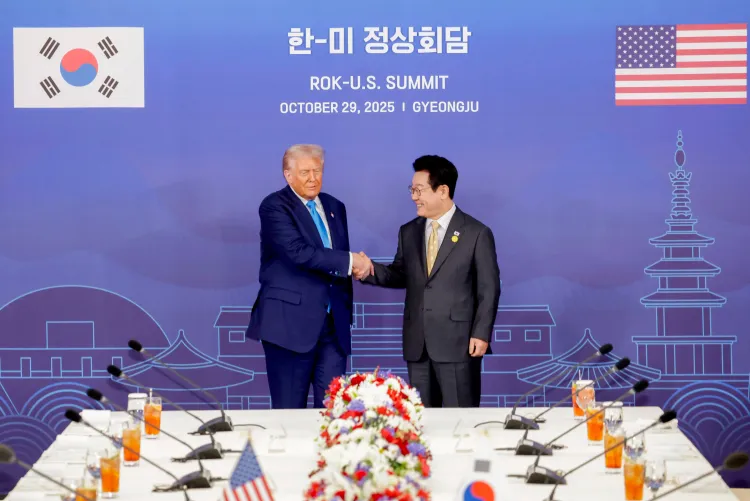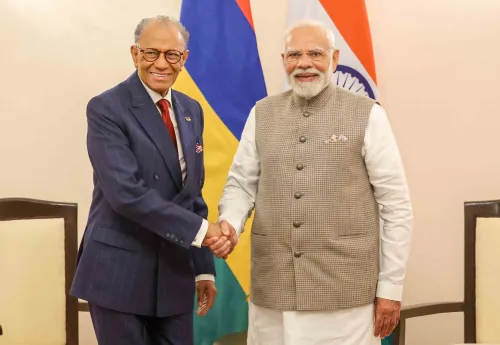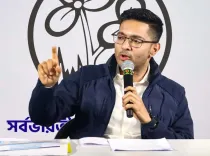Why is there a Delay in the South Korea-US Summit Fact Sheet?

Synopsis
Key Takeaways
- Joint fact sheet from the summit still pending.
- South Korea's USD 350 billion investment agreement highlighted.
- Delays due to US interagency coordination.
- Security commitments involving nuclear-powered submarines discussed.
- Potential need for new agreements on nuclear fuel production.
Seoul, Nov 6 (NationPress) The joint fact sheet detailing the outcomes of last week's summit between President Lee Jae Myung of South Korea and US President Donald Trump has yet to be published, leading to speculation about the reasons for the notable delay.
Officials from Seoul previously indicated that the two nations intended to release the fact sheet summarizing the agreements made by the leaders within "two or three days" following their meeting, which took place during the Asia-Pacific Economic Cooperation (APEC) summit in Gyeongju on October 29.
The anticipated fact sheet is likely to specify the details surrounding South Korea's USD 350 billion investment commitment, which was made in exchange for the US lowering its tariff rate on South Korean products from 25 percent to 15 percent, as reported by Yonhap News Agency.
It is also expected to elaborate on security pledges, including support for Seoul's initiatives to secure fuel for its nuclear-powered submarines, following President Trump's indication of readiness to assist in this matter after his discussions with President Lee.
The delay in releasing the document has sparked speculation that the prolonged interagency coordination within the US government could be the reason for the hold-up.
According to sources familiar with the situation, Seoul has submitted its draft of the fact sheet to Washington and is awaiting feedback, implying that the delay is more about refining the document among relevant US agencies rather than incomplete negotiations.
During a session with lawmakers on Thursday, Foreign Minister Cho Hyun mentioned that the State Department had requested him to "wait a little longer."
"We are not procrastinating, but the delay is primarily due to the coordination process with the United States," Cho stated during a National Assembly meeting.
He also noted that the US side is seeking final confirmation from the involved government departments.
The matter regarding nuclear-powered submarines will necessitate coordination between the State Department, the Department of Energy, and other relevant national security entities. Such sensitive topics require careful consideration of the document's language.
Defence Minister Ahn Gyu-back echoed similar sentiments during a parliamentary discussion on Wednesday, indicating that issues related to nuclear submarines will require interagency coordination in Washington.
The publication of the joint fact sheet may face further delays as South Korea will need to review the US draft once it is returned from Washington.
There remains a chance that the two sides have not fully agreed on critical security matters, especially regarding Seoul's ability to produce its own fuel for nuclear submarines. This would necessitate either a revision of their nuclear energy agreement or a new treaty. Washington has the authority to permit Seoul to enrich uranium for nuclear submarines.
The postponement of the fact sheet's release has also delayed the announcement of outcomes from their recent annual security discussions held earlier this week between Ahn and US Secretary of Defence Pete Hegseth.
The two defence leaders discussed crucial alliance matters, including South Korea's goal to regain wartime operational control from the US and its plans for increased defence expenditure—details that must align with the contents of the imminent joint fact sheet.










